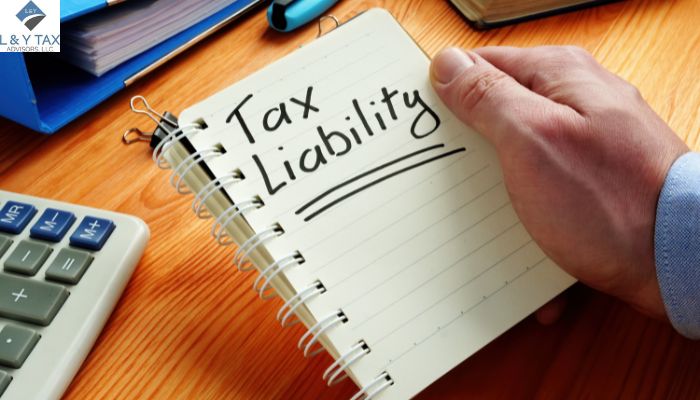
What Happens to Your Tax Liability with Proper Financial Planning?
Undoubtedly, it is impossible to avoid taxes, but it doesn’t mean that you’re liable to pay more than what you owe. Knowing about what happens to your tax liability with proper financial planning is achieved by understanding the taxation liabilities and buckling up for tax return preparation, both of which are crucial to maximize returns and maintain a balanced state of financial equilibrium.
As a responsible citizen, paying taxes on time is one of the best roles you can play to stabilize and maximize the economic growth of your country. All you need is appropriate financial planning to make the most of available credits and deductions while simultaneously optimizing the situation and implementing the taxation regulations.
The simplest answer to what happens to your tax liability with proper financial planning is that it allows you to reduce the payable amount that you owe to the Internal Revenue Service (IRS) while saving more of the income to fund your financial goals. Consulting an IRS representation, taxation expert, or financial advisor is a good step in the creation of strategies for the effective management of tax liabilities.
A Comprehensive Guide to Tax Liability
The money that an individual, business, or organization owes to the local, federal, or state taxation authorities entails the notion of tax liability. The easiest way to visualize your taxation liability is the difference between taxable income and the tax deductions you’re able to claim.
Click here to read about ‘Is HOA tax deductible?’
A general rule of thumb suggests that the amount of tax to be paid is directly proportional to how much income you’re generating year-round. Providing maximum conveniences to the natives of a country is the ultimate responsibility of the state. Therefore, it is important to walk a strategic path to what happens to your tax liability with proper financial planning, as it monitors a congruent alignment, proving that a graduated tax system is running, which certifies that your earnings and taxation rates are walking hand-in-hand.
Capital Gains Increase Tax Liability
Capital gains are the profits that are realized by selling an investment, such as stocks, bonds, or real estate.
For example, whenever you purchase an investment asset in the hope that it will raise its financial value, it comes with a possibility that you can sell it for more than what you initially paid. In case you succeed, this profit will be considered as a capital gain.
It is your annual income that determines the amount of tax to be paid. However, capital gains also impact tax liabilities. If you’re a person who’s focused on investing and building wealth and generating capital gains, your higher net worth will expose you to face steeper tax liability.
Complete Guide: What Happens to Your Tax Liability with Proper Financial Planning?
The management of your tax liability is important because it directly influences the amount of your income you’re going to keep. It becomes quite easier to build riches with the increasing income and assets you own.
Appropriate financial planning is vital to increase your earnings as well as possessions, along with minimizing the payable tax amount. Implementation of and consistently practicing such strategies will ascend your tax savings in all the years to come. This is one of the best ways to save for your retirement days and additionally increase your net worth.
If you think it would be beneficial to hire a financial advisor, an honest answer to this thought is that it entirely depends on your knowledge regarding taxation and finances. If you’re passionate about working while you can and save for the days when you’ll be thin on ice, such as in old age, it is recommended to consult with a financial or taxation expert. It is because you’ll be able to avail yourself of the beneficial advantages, including pinpointing the areas where you can improve tax efficiency that you might have missed.
Strategic Reduction in Tax Liability
Depending on the specifics of your situation, a number of strategic approaches can help you decrease your tax bills; a few of them are described below:
1. Investment Plan
It includes different aspects to manage the amount of tax you owe to the authorities. Suppose you’re investing through a taxable brokerage account that is subject to capital gains tax. One of the main strategies that your financial advisor may advise is to hold investments for longer than a year to take advantage of the more favorable long-term capital gains tax rate.

2. Retirement Planning
Planning for retirement is a focal point of a successful financial plan that ensures you have earned adequate enough to take a big break from your job finally. While saving for retirement days is important, it is much more crucial to concentrate on the ways when you’ll start making withdrawals.
3. Credits and Tax Deductions
As your income is reduced due to tax deductions, there are certain ways through which you can deduct and save more, such as charitable donations, medical expenses, business expenses, or mortgage interest.
What is the difference between tax planning and financial planning?
Tax and financial planning are integral to managing one’s finances, yet they serve different functions within that framework. Competitor Financial Advisors recognize the significance of understanding these two terms to help clients meet their financial goals more easily.
Tax planning entails strategic decision-making to reduce how much in taxes an individual or business owes the government legally, while taking full advantage of tax deductions, credits and exemptions while complying with relevant laws and regulations. Tax planners analyze income sources such as investments or expenses with financial transactions in mind to optimize tax efficiency and limit liabilities as part of this planning.
Financial planning encompasses more than tax considerations; it involves evaluating an individual’s overall financial picture, including income, expenses, savings accounts, investment accounts and insurance, retirement planning, estate planning, and more. Financial planners aim to develop comprehensive strategies that assist individuals with meeting both short and long-term financial goals like purchasing their dream home, saving for education costs or wealth accumulation goals.
“Generally, a financial plan is a comprehensive evaluation of an individual’s current pay and future financial state by using known variables to predict future income, asset values and withdrawal plan. This often includes a budget which organizes an individual’s finances and sometimes includes a series of steps or specific goals for spending and saving in the future. This plan allocates future income to various expenses, such as rent or utilities, and reserves some income for short-term and long-term savings. A financial plan is sometimes referred to as an investment plan. Still, in personal finance, a financial plan can focus on other areas such as risk management, estates, college, or retirement.”
While tax planning primarily deals with tax reduction strategies, financial planning takes an all-inclusive approach that addresses various needs and goals for our client’s finances. Competitor Financial Advisors emphasizes integrating tax strategies into financial plans to enhance client results and accelerate wealth accumulation.
Conclusion
Knowing what happens to your tax liability with proper financial planning is essential to create a prolonged strategic plan for a consistently growing wealth. Giving more than what you have to the taxation authorities doesn’t offer any tangible benefits and, in turn, would become problematic. Seeking expert advice will make you go with informed decisions because tax laws are subject to change which complicates the navigation to its regulations.


